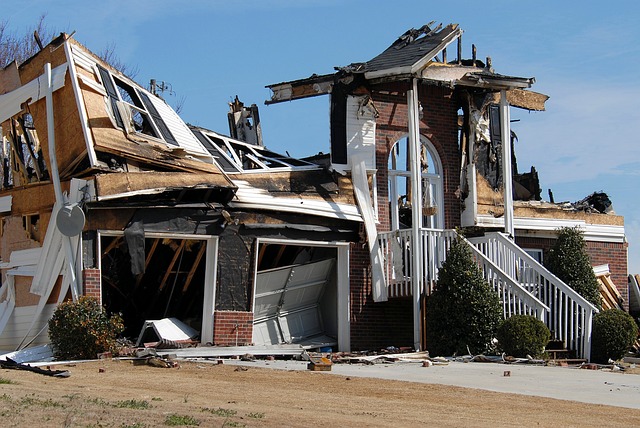Selling a house with fire damage in Houston, Texas, demands adherence to strict property disclosure laws that prioritize transparency for buyers. Sellers must disclose known defects like structural issues and historical fires, along with repair details, to avoid legal repercussions and foster trust. These regulations empower buyers to make informed decisions about repairs or budget considerations, ensuring a transparent real estate transaction process.
“Navigating Texas property disclosure laws, especially when selling a house with fire damage in Houston, is crucial for both sellers and homebuyers. This article guides you through the intricate web of legal obligations, focusing on fire damage as a material fact that must be disclosed. We explore the impact on homebuyers’ rights and provide an essential checklist for navigating this process successfully. Understanding these laws can ensure a transparent and fair transaction when selling a house with fire damage in Houston.”
- Understanding Texas Property Disclosure Laws
- Fire Damage: A Material Fact to Disclose
- Legal Obligations for Sellers in Houston
- The Impact on Homebuyers' Rights
- Navigating the Process: What You Need to Know
Understanding Texas Property Disclosure Laws

Texas property disclosure laws are designed to ensure transparency between sellers and buyers during real estate transactions, especially when it comes to potential risks or issues with a property. These laws require sellers to disclose known defects or hazards that could affect a buyer’s decision to purchase a home, including but not limited to, structural problems, environmental concerns, and health hazards.
In the case of selling a house with fire damage in Houston, Texas, understanding these disclosure requirements is crucial. Sellers must reveal any history of significant fires, the extent of damage, and whether any necessary repairs have been made. This transparency helps buyers make informed decisions, especially considering that fire damage can lead to hidden issues like structural instability or hazardous materials exposure.
Fire Damage: A Material Fact to Disclose

When selling a house with fire damage in Houston, it’s crucial to understand Texas’ property disclosure laws. Fire damage is considered a material fact that must be revealed to potential buyers. This includes any significant structural issues, repairs made or needed, and the extent of the damage. Failure to disclose this information could lead to legal repercussions and financial consequences for the seller.
In Houston, as in many parts of Texas, real estate transactions are heavily regulated to protect both parties. Sellers must provide a Property Disclosure Form, revealing any known defects or damages, including fire-related ones. This transparency fosters trust and ensures buyers make informed decisions. Disclosing fire damage allows interested buyers to assess the cost of repairs or consider if the property aligns with their needs and budget.
Legal Obligations for Sellers in Houston

In Houston, Texas, sellers have legal obligations when putting their properties on the market, especially if there’s history of fire damage. The state’s property disclosure laws require sellers to disclose any known defects or material facts that could affect a buyer’s decision to purchase a home. This includes revealing any fire damage and its extent, as well as any repairs or renovations made since. Failure to do so may result in legal repercussions.
When selling a house with fire damage in Houston, it’s crucial for sellers to be transparent. They must provide accurate information about the incident, such as when and how the damage occurred, along with details of any subsequent remediation efforts. Buyers have the right to know the full extent of potential issues that could impact their investment, making honest and complete disclosure a key responsibility for all Houston property sellers.
The Impact on Homebuyers' Rights

In Texas, property disclosure laws play a pivotal role in protecting homebuyers’ rights and ensuring transparency during real estate transactions. These laws require sellers to disclose any known defects or material facts about the property they are selling. This is particularly relevant for homeowners in Houston who might be considering selling a house with fire damage. Fire damage, even if previously repaired, can have significant implications for the structural integrity and value of a home.
By law, sellers must reveal the existence of any previous fires, the extent of damage, and the nature of the repairs conducted. This transparency empowers homebuyers to make informed decisions, conduct thorough inspections, and potentially negotiate prices or repair costs. It also helps in mitigating potential legal issues that may arise from undisclosed fire damage, especially since such events can have lasting effects on a property’s safety and appeal, particularly for buyers seeking a safe and secure home environment, such as those affected by Houston’s occasional severe weather conditions.
Navigating the Process: What You Need to Know

Navigating the process of selling a home, especially when it involves fire damage in Houston, can be complex due to Texas’s stringent property disclosure laws. These regulations are designed to protect both buyers and sellers by ensuring transparency about any potential issues with a property. When preparing to sell your house with fire damage, understanding these requirements is essential.
For instance, you must disclose known defects or hazards, including structural issues, environmental concerns, and yes, even fire damage. In the case of Houston, which has seen its fair share of natural disasters, including wildfires, sellers are required to inform buyers about any historical or current damage and the efforts made (or needed) for repair. This process involves filling out detailed forms that can be intimidating, but it’s crucial for a smooth transaction.
When selling a house with fire damage in Houston, understanding Texas property disclosure laws is crucial. This comprehensive guide has outlined key aspects, from disclosing fire damage as a material fact to the legal obligations of sellers. It has also highlighted how these laws protect homebuyers’ rights and provided practical insights for navigating the process. By adhering to these regulations, both parties can ensure a transparent and fair transaction.






